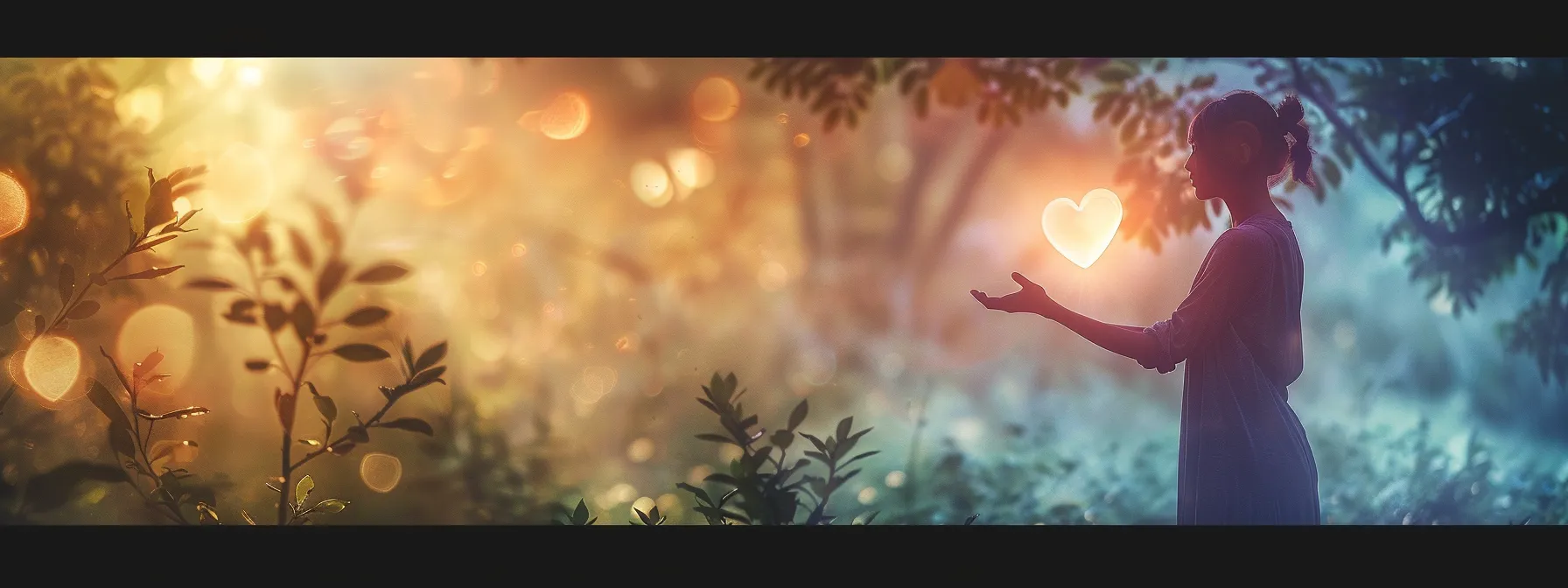The Science of Addiction: Understanding Effective Treatment Approaches
Addiction undermines brain function and alters decision-making, requiring professional treatment. This post covers the Science of Addiction behind addiction and effective treatment approaches used at Kingdom Recovery Center in Morristown, TN. Readers will gain insight into how structured programs, medical detoxification, and behavioral therapy work together to promote lasting sobriety. The content addresses the challenge of managing a chronic disease and also offers clear, research-based solutions to help individuals move toward recovery.

Key Takeaways
- Understanding neurotransmitter imbalances is crucial for addressing addiction’s impact on decision making
- Genetic factors play a significant role in increasing susceptibility to addiction
- Key brain structures like the nucleus accumbens and prefrontal cortex drive Science of Addiction behaviors
- Evidence-based treatment combines medications, counseling, and also behavioral therapies for lasting recovery
- Personalized treatment plans enable precise interventions that support the recovery journey
The Science of Addiction and Its Impact on the Brain

Understanding neurotransmitter dynamics, genetics in addiction susceptibility, and the role of key brain structures offers insight into addiction’s impact on brain chemistry. The discussion covers how technology aids research, the effects of inhalant use, what-we-treat, twitter as a communication tool, the role of blood interactions, and also pain signaling in addiction, setting the stage for detailed analysis.
Understanding Neurotransmitter Dynamics
Understanding neurotransmitter dynamics forms a foundational element in addressing addiction, as imbalances can alter brain responses to pleasure and affect decisions. This topic is critically linked to health care protocols and policy efforts implemented across Virginia, and the following points outline key findings:
- Neurotransmitter imbalances directly influence decision-making and impulse control.
- Health policy initiatives in Virginia support research and treatment strategies targeting these imbalances.
- Effective treatment approaches harness these insights to improve overall health care practices.
The interplay between neurotransmitters and addictive behaviors offers actionable insights for professionals designing treatment protocols and refining health policy. Clear expertise in this field enables providers to integrate practical examples into treatment plans, ensuring that interventions are aligned with the latest findings in the science of addiction and also health care adjustments.
The Role of Genetics in Science of Addiction Susceptibility
Research indicates that genetic factors play a significant role in addiction susceptibility, where variations in serotonin pathways may influence the reinforcement of addictive behaviors. Studies have shown that certain genetic profiles might also predispose individuals to conditions like hypertension and hepatitis c, which can complicate treatment strategies when combined with substance abuse challenges.
Experts at specialized treatment centers integrate genetic insights into individualized recovery plans, utilizing medications such as semaglutide to target biological pathways and reinforce behavioral changes. This method offers practical intervention techniques that address both addiction and also related health issues, contributing to more comprehensive care for individuals in need.
Brain Structures Involved in Addiction
Brain structures exhibit distinct roles in the development of addiction, with professionals utilizing Science of Addiction to understand how amphetamine and other substances influence neural circuits that govern impulse control and reward. The study of these areas aids clinicians in refining strategies for substance use disorders while promoting recovery that benefits both mind and also the circulatory system.
Experts incorporate comprehensive knowledge of brain regions into treatment plans, ensuring that the goal of effective intervention is met by addressing specific neural pathways directly impacted by substance abuse:
Effective Treatment Approaches for Addiction

Evidence-based practices drive substance abuse treatment. Contingency management and pharmacological options, such as disulfiram, address cravings while behavioral therapies help reduce panic symptoms. Leadership in recovery, aligned with joint commission standards, reinforces these methods. Subsequent sections detail each approach for effective addiction intervention.
Evidence-Based Practices in Substance Abuse Treatment
American addiction centers utilize evidence-based practices that integrate behavioral therapies with medication management to address substance abuse effectively. This approach targets brain areas such as the prefrontal cortex and amygdala, reflecting a deep knowledge of Science of Addiction and treatment strategies for issues including smoking cessation.
Specialized treatment programs apply research-driven methods to monitor progress and also tailor interventions that suit individual needs. These practices provide actionable solutions that empower professionals to foster recovery through targeted therapies and improved understanding of brain function.
Behavioral Therapies and Their Effectiveness
Behavioral therapies empower individuals to manage addictive behaviors by focusing on brain function, such as regulation in the nucleus accumbens, and lowering instances of violence in daily interactions. These therapies offer practical insights that capture the attention of health professionals, while reinforcing management strategies that address both behavioral and also emotional challenges.
The approach integrates cognitive techniques that enable better impulse control and stress management, ultimately reducing harmful behaviors and their impact on overall health. Behavioral interventions also provide guidance that ensures patients receive targeted care, which is essential for diminishing the likelihood of violence and also fostering well-rounded recovery processes.
Pharmacological Treatments and Their Mechanisms
Pharmacological treatments target specific neural pathways with evidence from clinical research guiding drug refinement, addressing anhedonia while supporting overall muscle recovery:
- Mechanism of drug action
- Reduction of anhedonia
- Enhanced treatment response
- Improvement in muscle function
- Evidence-based clinical outcomes
These medications work to stabilize brain chemistry and improve impulse control, offering an actionable treatment option for individuals facing addictive behaviors. The precise mechanisms enhance the body’s responsiveness to intervention, ensuring that both mental and also physical health receive comprehensive care.
Science of Addiction behind Recovery Programs

Successful recovery models address substance abuse through personalized treatment plans that support executive functions, reduce risks of death, and protect the heart. Evidence shows adaptive strategies improve outcomes even in complex cases like hallucinogen persisting perception disorder. Support systems also contribute significantly, ensuring lasting recovery and also steady progress in overcoming addiction challenges.
Overview of Successful Recovery Models
Successful recovery models at specialized clinics address opioid use disorder through a combination of clinically guided therapies and medication-assisted treatment with methadone, ensuring a structured path to recovery. These models support individuals in managing peer pressure and preventing opioid overdose, ultimately offering a pragmatic approach to long-term sobriety.
Integrated treatment methods emphasize personalized care and real-world strategies that are proven effective in overcoming addiction challenges. The practical insights derived from these programs enable professionals to tailor interventions, helping individuals navigate peer pressure and also reducing the likelihood of opioid overdose while managing opioid use disorder effectively.
The Importance of Personalized Treatment Plans
Personalized treatment plans offer tailored strategies that empower a patient’s mind, creating a clear perception of their recovery journey while ensuring they remain connected to a supportive community; this approach proves invaluable for individuals seeking to stay sober and also engaged, with professionals often inviting patients to submit their email address for detailed follow-up information:
- Individual assessment of triggers
- Customized behavioral interventions
- Regular progress evaluations
With a focus on real-life applicability, treatment centers develop plans that address specific challenges, ensuring that every aspect of recovery is managed effectively; such strategies help maintain a stability in mind, refine a positive perception of success, and integrate community support, making it easier for patients to achieve and also sustain a sober lifestyle while staying in touch via their email address.
Roles of Support Systems in Recovery
Robust support systems play a critical role in rehab by providing consistent care that helps stabilize brain functions such as the mesolimbic pathway and manage heart rate fluctuations. Professionals use practical community strategies to extend recovery resources, often leveraging social tools like linkedin to share valuable insights.
Group efforts and tailored guidance enhance recovery by addressing individual challenges and promoting lasting sobriety. Networks of dedicated peers and access to donation-supported services offer additional layers of support, complementing clinical treatments and also overall wellness objectives.
The Influence of Psychology on Substance Use Disorders

Cognitive Behavioral Therapy supports changes in brain function, evaluation, and motivation, while holistic care addresses central nervous system recovery and learning. Trauma-informed care further refines evaluation of past experiences, enhancing treatment benefits. Subsequent sections detail these strategies, offering practical insights into their roles in effective addiction therapy.
Cognitive Behavioral Therapy and Its Benefits
Cognitive Behavioral Therapy (CBT) offers targeted information that supports individuals in overcoming challenges with drinking and drugs by restructuring harmful behavioral patterns; a physician often recommends this method to facilitate sustainable recovery and also improved decision-making during treatment for addiction:
- Structured sessions that focus on realistic goal-setting
- Techniques that reduce impulsive behaviors related to substance use
- Step-by-step guidance in monitoring progress
This therapy method equips individuals with actionable insights into managing their behaviors, supports healthier coping mechanisms, and also provides a clear pathway for recovery tailored to complex addiction challenges.
Holistic Approaches in Addiction Treatment
Holistic approaches in addiction treatment integrate both psychological and physiological assessments to address stress and aggression in patients. By incorporating neuroimaging, professionals can visualize brain function alterations, enabling more effective strategies that promote empowerment and sustained recovery.
This method of treatment leverages comprehensive evaluations to tailor interventions that reduce stress and minimize aggressive tendencies. Clinical experts emphasize personalized care that supports patient empowerment, using actionable insights from neuroimaging to refine therapeutic practices and also ensure measurable improvements in mental health.
Impact of Trauma-Informed Care
Trauma-informed care addresses the root causes of emotional stress in substance use disorders, reducing insomnia and confusion while promoting better neural function in the hippocampus. This method supports patients in overcoming harmful habits and initiates recovery strategies by ensuring that psychological well-being is prioritized:
- Customized therapeutic sessions
- Stress regulation techniques
- Targeted evaluations for habit improvement
The application of trauma-informed care offers actionable insights that aid in weight loss and the reformation of detrimental habits. Clinical experts note that aligning these practices with psychological assessments directly enhances hippocampus recovery, turning behavioral challenges into paths toward stability.
Innovative Strategies for Managing Addiction Relapse

This section outlines key strategies for managing relapse, focusing on identifying triggers and high-risk situations, developing practical coping mechanisms to support a healthy memory and cellular function, and also establishing effective aftercare systems. A provider may incorporate targeted counseling techniques to reduce risks, including prevention of complications such as Wernicke encephalopathy.
Identifying Triggers and High-Risk Situations
Identifying environmental and emotional cues is key for managing addiction relapse, and also professionals use detailed assessments to recognize moments that may lead to dangerous outcomes such as hypoxia or injury. Clinicians often emphasize the value of proper insurance coverage to ensure patients can access consistent support, while addressing concerns that may trigger issues related to impaired recall or dementia symptoms.
Experts recommend practical steps for recognizing potential high-risk scenarios, which may include situations with increased physical or cognitive challenges, such as events leading to injury or abrupt changes in mental status:
- Insurance verification challenges
- Episodes of hypoxia or oxygen deprivation
- Signs associated with dementia
- Risk of physical injury
- Issues with memory recall
Developing Coping Mechanisms for Sustained Recovery
A health care provider recommends that patients learn practical coping methods to manage triggers effectively, with a focus on understanding how addiction affects the brain and the role of medicine in recovery. This approach combines tailored behavioral techniques and targeted pharmacotherapy, including buprenorphine, based on research from the national institutes of health and also clinical experience:
The health care provider stresses that developing coping mechanisms is critical for sustained recovery, integrating practical examples and techniques that resonate with patients. Structured interventions emphasize self-management strategies and appropriate use of medicine, guided by detailed insights into how addiction affects the brain and also supported by clinical findings from the national institutes of health.
The Role of Aftercare and Continuing Support
The provider notes that aftercare and ongoing support are critical elements in managing relapse, addressing the influence of the limbic system on emotion and mood. Continuous programming reinforces strategies for maintaining sobriety and managing opioid-related challenges.
Continuing support offers practical steps to build resilience and improve daily routines through exercise and also sustained care. The process includes clear actions:
- Regular assessments of mood and emotional well-being
- Scheduled exercise to support physical and mental health
- Ongoing guidance tailored to opioid recovery needs
These initiatives help patients refine coping skills and also reinforce structured aftercare plans.
The Importance of Research in Advancing Addiction Treatment

Current trends in addiction studies highlight advanced therapies and increased funding for research on blood pressure and encephalopathy. Emerging insights guide future treatment methods and build links with narcotics anonymous support. Detailed findings, shared via email, provide practical strategies that enhance intervention and also promote recovery outcomes.
Current Trends in Addiction Studies
Current trends in addiction studies emphasize rigorous clinical research that examines the effects of various substances, including narcotic and hallucinogen compounds, on brain function. Researchers also investigate the intersection of addiction treatment with health challenges such as hepatitis b, providing valuable insights that inform effective programs for recovery and relapse prevention.
Innovative research in this field drives the evolution of treatment methods, and studies continue to explore targeted interventions backed by clinical research. Experts utilize actionable data to design treatment programs that address both physiological and behavioral aspects of addiction, ensuring that patients receive comprehensive and also evidence-based care.
Funding and Resources for Addiction Research
Research funding and resource allocation play a vital role in advancing addiction treatment principles, particularly in addressing the opioid epidemic. Experts use tools such as positron emission tomography and electroencephalography to monitor brain activity and assess toxicity levels in patients, enabling them to refine therapeutic methods and also provide measurable outcomes.
Strong investment in addiction research offers a robust library of data that supports the development of precise treatment interventions. This resource promotes the use of clinical imaging techniques alongside funding between research and practice, empowering experts to optimize patient care and also enhance recovery strategies across treatment centers.
Future Directions in Treatment Methodologies
Emerging treatment methodologies are using innovative techniques to address the complex interactions of stimulant use and addiction. They focus on reducing euphoria-driven behaviors while promoting sustained sobriety. Researchers are using advanced data analytics to refine interventions and reduce risks like seizure episodes and also hepatitis complications. These efforts provide actionable insights for clinical applications.
Future treatment approaches are prioritizing personalized care that accounts for individual responses to substances and also recovery challenges. This proactive shift in research is driving the development of precision therapies aimed at stabilizing brain chemistry. Additionally, these therapies counteract the excessive euphoria caused by stimulants, ultimately supporting more reliable paths to sobriety.
Conclusion
The content emphasizes how a deep understanding Science of Addiction neurobiology guides effective treatment interventions. It shows how insights into neurotransmitter dynamics, genetics, and brain structures form the basis of personalized recovery plans. Evidence-based practices and targeted therapies prove crucial in stabilizing brain chemistry and also supporting sustainable behavioral change. This structured approach empowers professionals to design treatment methods that significantly enhance recovery outcomes.
